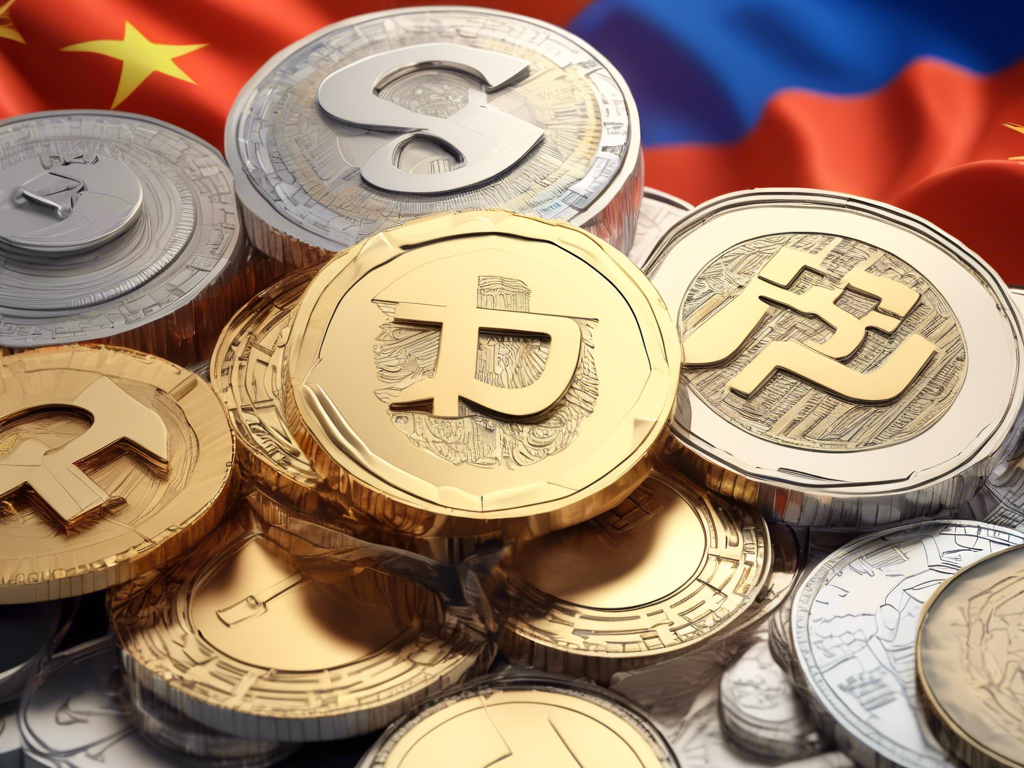Exploring the Use of Stablecoins in Cross-Border Transactions
Russian commodities firms have encountered challenges in executing financial transactions with Chinese counterparts. Due to international restrictions and tightening compliance measures, these firms have resorted to using stablecoins, such as Tether’s stablecoin, to facilitate cross-border transactions with their Chinese clients and suppliers. Top executives from major unsanctioned metals producers have confirmed the utilization of stablecoins for transactions, providing a workaround for the difficulties faced by Russian firms in receiving payments and purchasing equipment and raw materials. Let’s delve deeper into the use of stablecoins in international trade transactions.
The Impact of Sanctions on Business Transactions
The adoption of blockchain technology and stablecoins by Russian firms showcases the enduring consequences of international restrictions triggered by the conflict in Ukraine. While China remains a crucial export market for Russian commodities and has not imposed sanctions, financial transactions have become more challenging due to the looming threat of secondary sanctions from the US Treasury Department. Stablecoins offer various advantages over traditional methods, including faster transactions and lower costs. Ivan Kozlov, an expert on digital currencies and co-founder at Resolv Labs, highlights the efficiency of stablecoin transactions, taking mere seconds and costing minimal amounts. Considering the alternatives, stablecoins present a compelling option for Russian firms grappling with slower transactions or the risk of frozen overseas bank accounts.
- Unsanctioned companies resort to opening numerous bank accounts in various countries to conduct transactions.
- The swift and cost-effective nature of stablecoin transactions makes them a preferred choice for cross-border payments.
Global Trend: Countries Embrace Stablecoins for Transactions
The utilization of cryptocurrencies for payments extends beyond Russian firms, with other countries under sanctions also turning to Tether for conducting transactions. Venezuela, a nation facing sanctions, has increasingly relied on Tether for transactions, often at significant discounts. Intermediaries based in Dubai facilitate these deals, underscoring the growing role of cryptocurrencies in global settlements. The evolving stance of the Russian central bank towards cryptocurrencies is evident, with Governor Elvira Nabiullina expressing support for experimenting with cryptocurrency payments in international transactions. While the Bank of Russia had previously contemplated a blanket ban on all cryptocurrencies, it is now considering establishing a legal framework for the use of stablecoins in international transactions.
- The central bank’s willingness to explore cryptocurrency payments signifies a shift in regulatory approach.
- Increased cryptocurrency activity among Russians has led to the expansion of crypto-linked banking services in the country.
Addressing Concerns and Collaboration in the Cryptocurrency Space
Recent reports have raised concerns about Tether’s role in cyber fraud and money laundering activities in Southeast Asia. Tether has refuted these allegations, emphasizing its collaboration with law enforcement agencies and the traceability of its token. The company’s collaboration with global law enforcement entities, including the Department of Justice, the Federal Bureau of Investigation, and the United States Secret Service, has enhanced monitoring capabilities, surpassing those of traditional banking systems. As the cryptocurrency landscape continues to evolve, collaborations between regulatory bodies and industry players become crucial in addressing illicit activities and ensuring the integrity of the financial system.
Hot Take: Embracing Innovation in International Transactions
As global business dynamics shift and regulatory landscapes evolve, the use of stablecoins in international transactions has emerged as a strategic solution for overcoming financial obstacles. Russian firms, facing challenges in executing transactions with Chinese counterparts, have turned to stablecoins to facilitate cross-border payments efficiently. The growing trend of countries under sanctions embracing cryptocurrencies for transactions underscores the evolving role of digital assets in traditional finance. Collaboration between regulatory authorities and industry players will play a pivotal role in fostering transparency and security in the cryptocurrency space. Stay tuned for further developments in the utilization of stablecoins and blockchain technology in international trade transactions.
Sources:
– Bloomberg Report on Russian Firms Using Crypto for Trade with China
– United Nations Report on Cryptocurrency Activities in Southeast Asia





 By
By
 By
By
 By
By

 By
By
 By
By